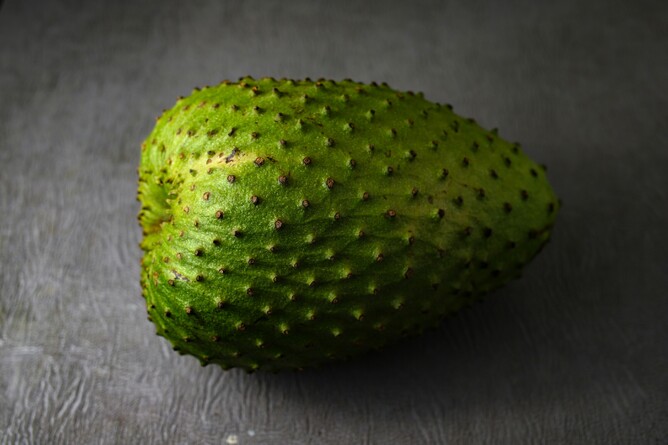Soursop, also known as graviola, has gained attention in recent years for its potential to help in the fight against cancer. While research is still ongoing, many studies suggest that certain compounds found in this tropical fruit may offer promising therapeutic effects.
What Makes Soursop Special?
Soursop contains unique compounds called acetogenins that have shown potential in laboratory studies to inhibit the growth of cancer cells. These natural chemicals are believed to target and destroy cancerous cells without harming healthy ones, a property that could make soursop a potential complementary treatment in cancer therapy.
Scientific Research on Soursop and Cancer
Research has demonstrated that soursop extracts may have anti-cancer properties by:
Inducing Cancer Cell Death: Studies suggest that acetogenins in soursop extracts can cause apoptosis (programmed cell death) in cancer cells, particularly in types like breast, prostate, and colon cancers.
Preventing Metastasis: Some studies have indicated that soursop may help prevent cancer cells from spreading to other parts of the body, a key factor in managing cancer progression.
Supporting Chemotherapy: Preliminary research has explored the possibility that soursop could work synergistically with traditional cancer treatments, enhancing the effectiveness of chemotherapy or reducing side effects.
What We Know So Far
While soursop shows promise in lab studies, it's important to note that there isn’t enough clinical evidence to support its use as a standalone treatment for cancer. Much of the research has been conducted in vitro (in test tubes) or on animals, and human clinical trials are still limited. As with any natural remedy, it’s crucial to consult with a healthcare provider before using soursop in any form as part of a cancer treatment plan.
Conclusion
While soursop’s cancer-fighting properties are still being explored, its potential is exciting. With its natural acetogenins, it could one day play a role in cancer prevention or treatment. However, more research is needed to fully understand its effects on human health.
See the range of herbal medicines in the Revive Wellness Herbal Dispensary
By Nerena Morris B.Sc. ND, DipMedHerb
